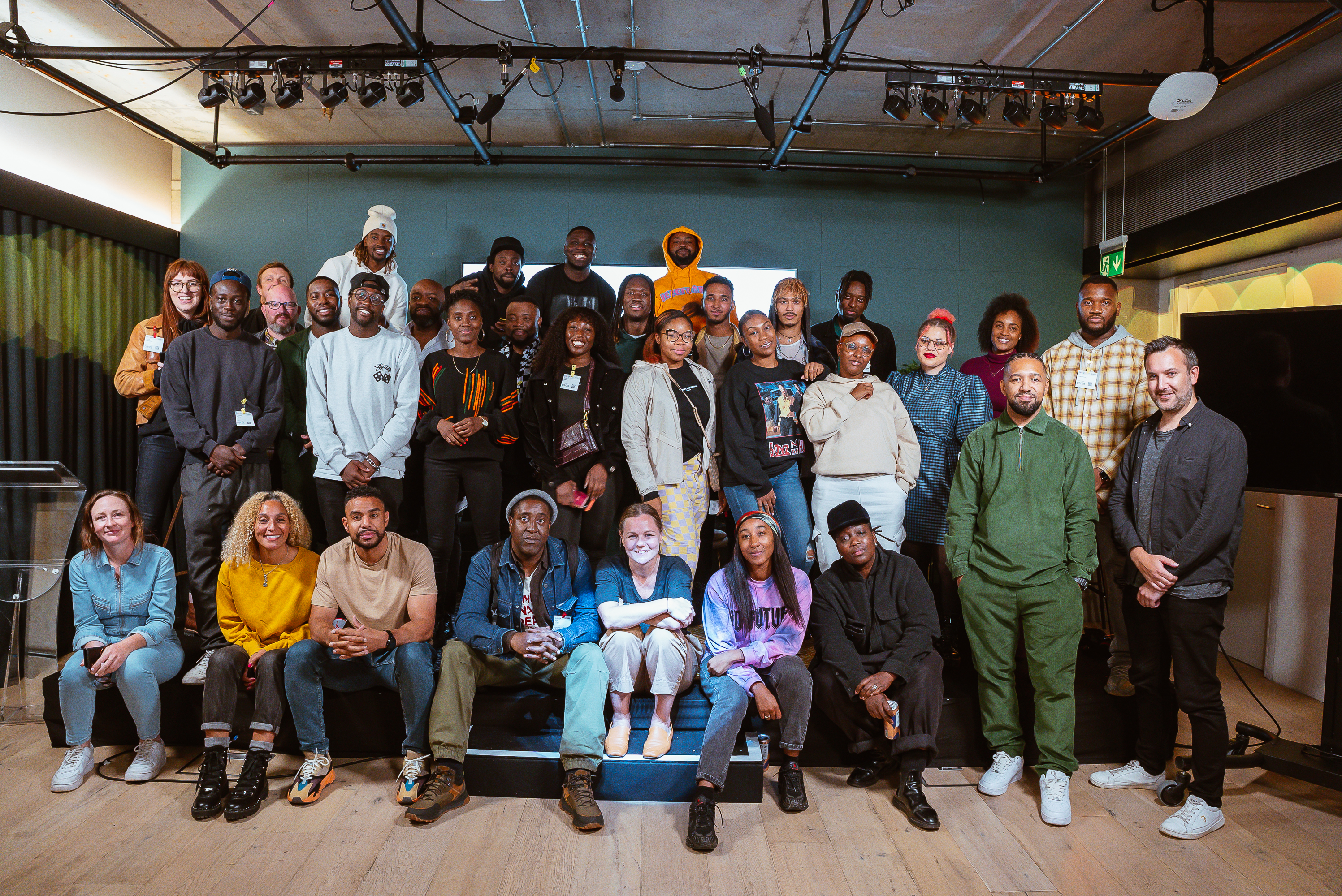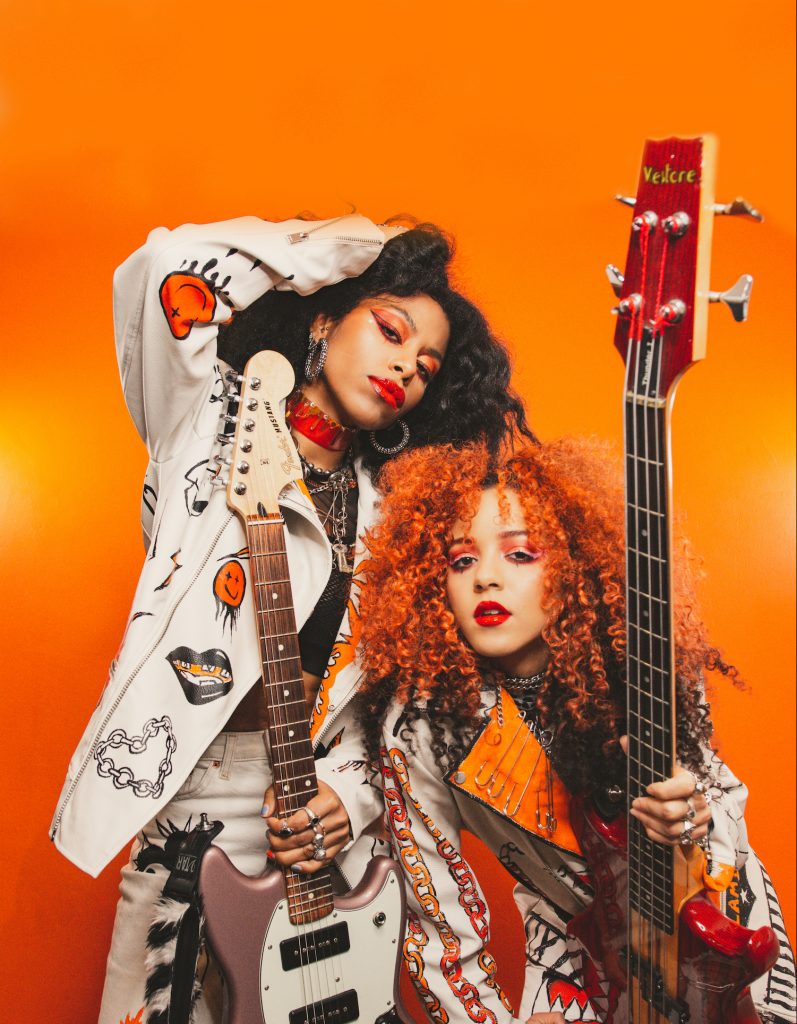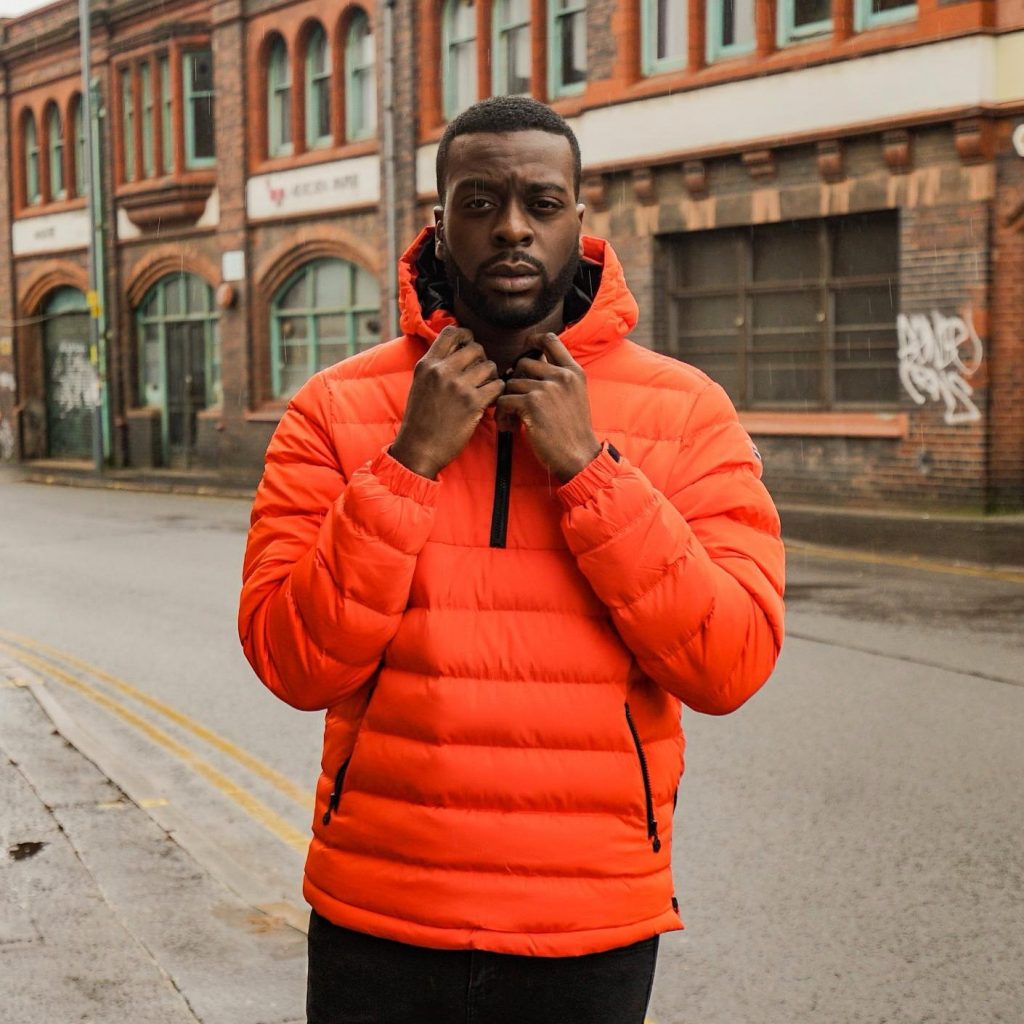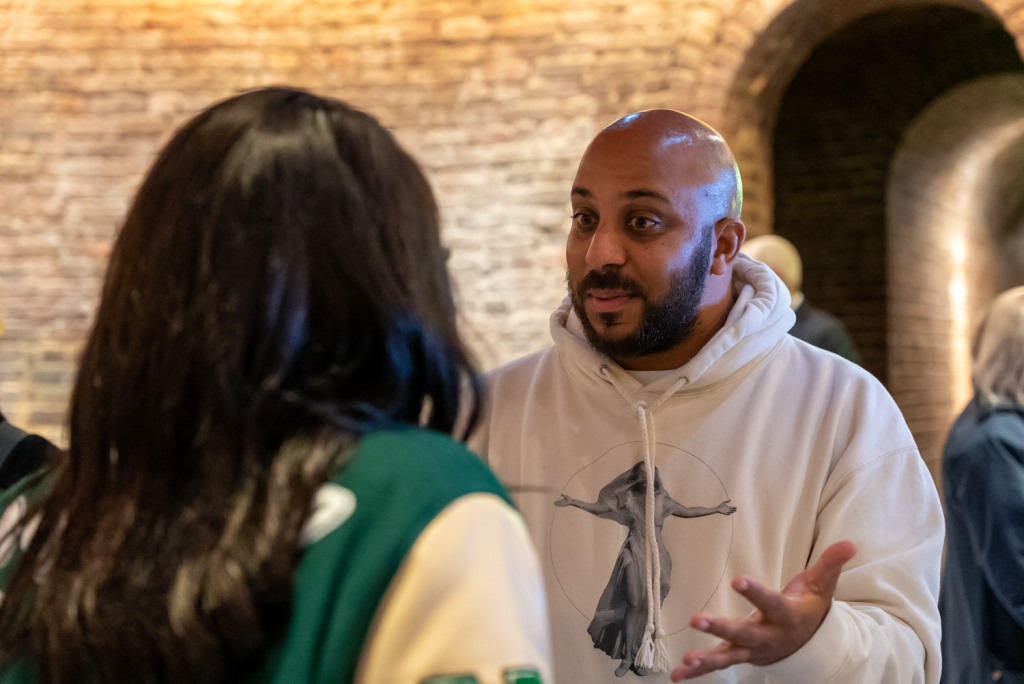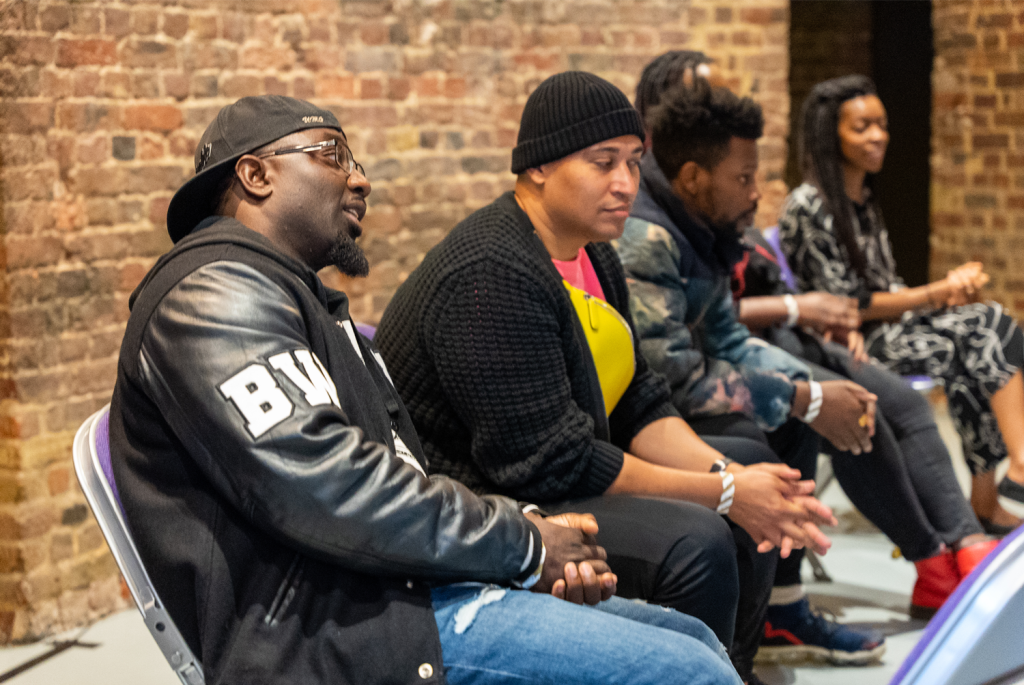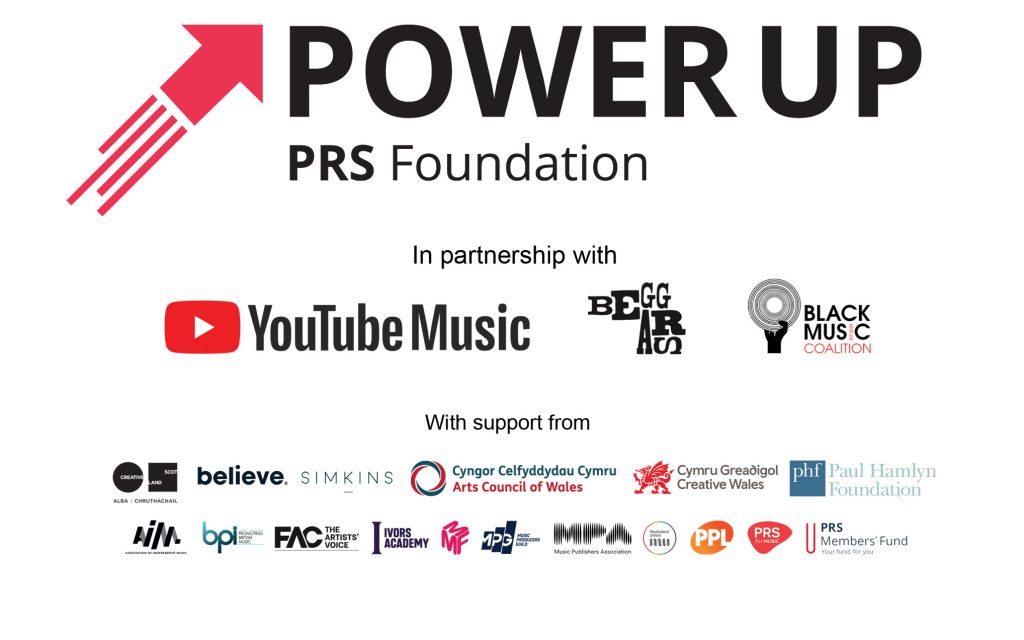POWER UP FAQs
What is POWER UP?
POWER UP is a brand new ambitious, long-term initiative which will support Black music creators and industry professionals and executives with grants and industry wide support as well addressing anti-Black racism and racial disparities in the music sector.
Who is involved?
POWER UP was co-founded by PRS Foundation and Ben Wynter (Founder, Unstoppable Music, Entrepreneur and Outreach Manager, AIM and formerly Industry Fund Manager at PRS Foundation).
Managed by PRS Foundation in partnership with YouTube Music, Beggars Group and the Black Music Coalition, the initiative brings several music industry partners across all sectors together to accelerate change.
Supporters include Creative Scotland, Believe, Simkins, Arts Council of Wales, Creative Wales, Paul Hamlyn Foundation, plus AIM, the BPI, the FAC, The Ivors Academy, the MMF, the MPA, MPG, The Musicians’ Union, PPL, PRS for Music and the PRS Members’ Fund who each bring added-value support to power up participants. Daft Springer are an Associate Partners. Find out more about our Partners here.
More than 80 Black music executives and creators have come together to contribute and steer ‘Power Up’.
Established in late 2020 to strategically steer the initiative, a Power Up Executive Steering Committee features, Keith Harris OBE, MD Keith Harris Music Ltd. (Artist Manager, Consultant); Paulette Long OBE, Music Publisher, Consultant, Dep’ Chair, UK Music Diversity Task Force; Ammo Talwar MBE, Punch Records & UK Music Diversity Task Force Chair; Sheryl Nwosu, Lawyer & Chair of the Black Music Coalition; Mulika Sannie, Legal Counsel, Music at Google/YouTube; Jackie Davidson MBE, JD Management, PPL Board, MPA Board, MMF Custodian Board; Ben Wynter, Co-Founder of Power Up, Founder Unstoppable Music & AIM Entrepreneur and Outreach Manager; Char Grant, A&R Director, 0207 Def Jam, Founder of The Debrief & Black Music Coalition Executive Committee; Natalie Wade MBE, Founder of Small Green Shoots & Co-Founder of The Cat’s Mother; Lorna Clarke, PRS Foundation Trustee; Les Spaine, CEO Spaine Music Company; Danny D MBE, Tim & Danny Music (Stellar Songs, Delirious Blacksmith Records); Kwame Safo, Funk Butcher/Houseology & PRS Foundation; Taponeswa Mavunga, Director of Africa, Sony Music; Yaw Owusu, Senior Power Up Manager, PRS Foundation (Chair); and Joe Frankland, CEO, PRS Foundation.
Senior Power Up Manager, Yaw Owusu chaired seven focus groups covering Recording and Publishing, Live, Platforms, Gender, Sexuality, Enterprise and Regionality.
Power Up Ambassadors include MC and actor Kano; Award-winning BBC Presenter and Music Entrepreneur DJ Target; artist Ray Blk; Disturbing London Founder Dumi Oburota; celebrated recording artist Lady Leshurr; Co-President of 0207 Def Jam, Alex Boateng; BBC Radio presenter/DJ Tifanny Calver; CEO of GRM Daily Koby ‘Posty’ Hagan; artist and relations manager at YouTube Music Sheniece Charway; LinkUp TV Founder Rashid Kasirye; and singer-songwriter Sabrina Washington.
What do you want to achieve?
Power Up aims to break down barriers to create:
- A fairer, more equitable music industry for Black creators and industry professionals
- Better representation in all sectors of the UK music industry
- To support innovative and exciting Black talent to create exceptional new music in all genres and at all career levels
- To amplify the work of Black creators and industry professionals to accelerate change
And how will you achieve that?
Power Up Participant Programme
The Power Up Participant Programme is designed to elevate exciting Black music creators and industry professionals and address barriers for those at crucial career stages.
Each year the Participant Programme will support:
- 20 x Black music creators – artists, songwriters, composers and producers who are involved in the creative process and may be working in any genre, based anywhere in the UK
- 20 x Black executives and industry professionals – industry professionals working in any sector of the music industry, anywhere in the UK. This includes employees and entrepreneurs, freelancers and self-employed professionals
Participants will will power up through:
- Grant support of up to £15,000
- Capacity building and mentoring
- Support from partners
- Marketing support
- Taking part in the Power Up network
Click here for full information and guidance on the Power Up Participant Programme
Power Up Movement
In alliance with the Black Music Coalition, the Power Up Movement will:
- Break down barriers
- Set targets and apply industry pressure to increase Black representation
- Accelerate change
- Empower and advocate for Black talent and executives/industry professionals
- Influence policy from the top down
- Shape the future of the music industry
Click here for full information and guidance on the Power Up Movement
Power Links
Alongside the participant programme and the change-making movement, we will apply a holistic approach to inclusion through a ‘Power Links’ approach which will result in better signposting of Black music creators to other funds and programmes, smartly connecting organisations we fund, and working closely with other initiatives and organisations doing amazing work to move the needle.
Find out more here.
Why is Power Up needed?
The Black Lives Matter movement highlighted the need for conversations around the structural and systemic anti-Black racism that occurs in today’s society. #TheShowMustBePausedUK in June 2020 led to more open discussions within music which brought to light the many barriers that face Black talent.
Power Up was created to address the barriers facing Black music creators and industry professionals in the UK, influenced by early conversations, deep and ongoing reflection and a sense that much more needs to be done to bring about lasting and meaningful change. Solidarity must be followed up with commitments, accountability and action so we set about forming an Executive Steering Committee and seven Focus Groups looking at the Black experience in today’s music industry. We identified various and complex barriers and have designed the Power Up Participant Programme and the Power Up Movement around those ongoing conversations.
Barriers for Black music creators and industry professionals in 2021 include:
- Structural and systemic racism and injustice
- Everyday prejudice in the workplace
- Marginalisation and underrepresentation on stage, in studios, in the media and in every genre and sub-sector of the music industry
- Lack of visibility, particularly in senior roles, at executive level, in Board rooms and for Black-led companies and organisations
- Economic inequality
- Inequitable financial benefit – the mainstream popularity of Black music in the UK means the music industry is profiting from Black music and Black culture which has a significant impact on the commercial music industry and pushes boundaries in all genres. The Black community receives a disproportionate share of the financial rewards of Black music’s success.
As shown in our ‘Background’ page, the UK Music 2020 Diversity Report found that:
- Only 7.8% of the music industry workforce surveyed identifies as Black
- There is a significant drop in representation as the workforce ages
- And people from an ethnic minority background are underrepresented at higher career levels
- Those who identified as Black or Black British represented 15.8% of the workforce at apprentice/intern level and 12.6% of the workforce at Entry Level
- But this lowers to 6.4% at Senior Level
- Those who identified as White accounted for 65.4% of the workforce at Entry Level and 80.1% at Senior Level
- The report also demonstrated income disparity
- The report also demonstrated income disparity
In a survey conducted by PRS Foundation, out of 400 Black applicants to our targeted Sustaining Creativity Fund round for Black creators impacted by Covid-19:
- 78% said they had experienced racism within the music industry
…with 100% of Classical applicants saying they have experienced racism
- 90% agree that there is a lack of visibility of Black industry professionals in senior roles
- 66% agree that Black talent is underrepresented on stage, in the studio and in the media
- 76% agree that there is a lack of record label and music publisher investment in Black talent
- 85% agree that the Black community receives a disproportionately low share of the financial rewards for Black music’s success
- 69% agree that music funding is less accessible for Black talent
- 66% agree that there are fewer talent development opportunities for Black music creators
- 46% of surveyed applicants based outside London strongly agreed that music funding is less accessible for Black talent
Arts Council England’s Creative Case Data Report for 2019-20 showed that only: 13% of Workforces, 11% of Chief Executives, 10% of Managers, 11% of Chairs, and 17% of Board Members at National Portfolio organisations are held by people of Black or minority ethnic origin. This compares to 18% of Artists and 10% of Audiences (and only 6% of audiences for Music-based NPOs).
The underrepresentation in music is stark when considering diverse populations across the UK and particularly in the context of a high workforce concentration in major cities including London, Birmingham and Manchester.
Click here for more evidence of the need for Power Up
“As an inclusive, proactive and collaborative funder, PRS Foundation is proud to have developed such an ambitious, long-term programme alongside our Executive Steering Committee, passionate Focus Group members and many partners, covering all genres, sectors and parts of the UK.
I especially want to thank co-founder Ben Wynter, Yaw Owusu and the many companies and organisations who have come on board at launch phase to make a real difference. It’s time to step up and we encourage music companies of all sizes to do more to build a stronger, more inclusive and fairer music sector.” Joe Frankland, PRS Foundation CEO
Why PRS Foundation?
PRS Foundation is proud to champion inclusion and diversity in the music industry with the Power Up movement being just one of many actions of commitment they are taking to stand up against injustice and to support the Black music community.
We are well placed to make a real difference, combining:
- Improvements to all programmes and alignment with all strategic objectives
- Initial actions in 2020 to address immediate barriers included a targeted Sustaining Creativity Fund deadline in 2020 which supported Black music creators impacted by Covid-19
- Sustained action to achieve long-term positive change
Our independence as a funder and the fact we work across all genres, sectors, regions and UK nations means we are also well placed to bring those working across the music ecosystem together. We have an unrivalled reputation as an inclusive, collaborative and accessible funder.
In 2021:
- 26.1% of PRS Foundation’s music creator grantees were Black, and 10.7% were Mixed Heritage including Black
- 63% of music creators supported were women, mixed gender groups or gender minorities
- 15% of music creator grantees identified as disabled
- We support a wide range of music genres, all career levels and music creators and organisations across the UK
- Our successful approach to gender equality also leads to strong intersectional inclusion, with 19.5% of women music creators supported being Black
Inclusive partnership programme success includes:
Women Make Music – In 2011 only 13% of PRS for Music members were women and 16% of PRS Foundation’s applications for commissions featured women creators. Women Make Music was launched soon after to tackle gender inequality and transform the careers of women creators. There has been a significant 5% shift in PRS membership and PRS Foundation achieved gender balance in our grants programmes in 2018.
Keychange – a pioneering international initiative which transforms the future of music whilst encouraging festivals and music organisations to achieve gender equality. Keychange partners support hundreds of participants around the world, we have over 600 Keychange Pledge signatories, and we are accelerating change and creating a better, more inclusive industry.
Black grantee success stories include:
Little Simz | Ghostpoet | Yola | Dave | Ezra Collective | Poppy Ajudha | AJ Tracey
Carleen Anderson | Nubya Garcia | Bugzy Malone | Errollyn Wallen | Ms Banks | Kojey Radical
Flohio | Ibibio Sound Machine | Novelist | Moses Boyd | The Fanatix | Yungen | Ghetts
…and Black-led organisations such as:
Jazz re:freshed | Small Green Shoots | Saffron Records | MOBO | Girls I Rate
Ruff Sqwad Arts Foundation | Chineke! Orchestra | Tomorrow’s Warriors
What do you mean by ‘Black’?
Power Up will support Black music creators and Black executives and industry professionals.
We recognise that ethnicity is personal to individuals through connections to common heritage, languages, cultures and/or ideologies stressing a common ancestry¹ so we are defining Black participants as people who would describe themselves as Black and/or have Black heritage.
For the avoidance of doubt, the Power Up Participant Programme is specifically for Black participants; it is not for those who belong to other ethnic groups such as Asian or White, or for those who are ‘politically black’ or fall within labels PRS Foundation no longer uses “POC” or “BAME” who do not describe themselves as Black or do not have Black heritage.
Within our application form we will firstly ask:
‘Do you describe yourself as Black and/or do you have Black heritage?’
We will then ask applicants: (if yes) ‘Which of the following best describes your ethnicity?’ :
- Black/Black British – African
- Black/Black British – Caribbean
- Black/Black British – African and Caribbean
- Black/Black British – Other (specify below)
- Mixed – Black Caribbean and White
- Mixed – Black African and White
- Mixed – Black and Asian
- Mixed – Black and Other (specify below)
Why is this only available to Black creators and industry professionals?
We are taking this action because we recognise that Black creatives and executives experience many specific and additional barriers to progression including:
- Structural and systemic anti-Black racism, everyday anti-Black prejudice and injustice in the industry and within music spaces
- Underrepresentation of Black talent on-stage, in studios, in the media, within the industry and in every sub-sector of the music industry
- Marginalisation of Black talent within the music industry, and a lack of visibility on and off stage
- Inequitable financial benefit – with historic exploitation of Black music, the Black community received a disproportionate share of the financial rewards of Black music’s success
As a funder we recognise that across the charitable sector there is historic underrepresentation through traditional funding and a lack of change over the last decades. Accessibility and visibility are issues for many funding schemes and underrepresented creatives are often less able to apply to fast-turnaround open calls.
We want to address this.
Read more about the background of Power Up.
What about those from Asian and other underrepresented ethnic groups?
We recognise across PRS Foundation programmes Asian music creators are underrepresented.
While Power Up addresses specific barriers facing Black music professionals and will tackle anti-Black racism, we’re committed to developing a deeper understanding of the complex barriers for Asian music creators and for music creators from other underrepresented ethnic groups.
Although this is being addressed through strategic priorities and other commitments from our team and board, we know more needs to be done. It is our hope that Power Up opens doors to more honest and effective conversations with other underrepresented groups. Should you wish to discuss this further, please contact our CEO, Joe Frankland.
Why is Power Up supporting executives and industry professionals?
In consultation with Focus Groups, partners and other stakeholders, it became clear that a grants and talent development programmed aimed only at Black music creators would have an impact but would not achieve the high-level impact and meaningful change that is required.
We know we need more diverse voices around the decision-making table and parity for creators will only happen when there’s parity in the industry, particularly at senior levels and within board rooms.
Creating a peer network featuring both creators and industry professionals is proven to work effectively through our global Keychange programme, and the outcomes resulting from this approach will bring added benefit to individual participants while addressing barriers in a joined up, highly strategic way.
How do I apply?
If you are interested in taking part in our annual Power Up participant programme, please first read our full guidance page for applicants which will include links to our application form when the open call is open (annually).
Looking at PRS Foundation’s list of partners and supporters, why are you working with YouTube Music/Google who continue to oppose the safe harbour reforms contained in the EU copyright directive?
Addressing barriers for music creator development is very important and PRS Foundation aims to create a stronger, more connected and fairer music industry. We look forward to developing a strong and honest relationship with YouTube Music whose track-record for supporting and building the careers of Black creatives has been exemplified through post-Black Out Tuesday action and commitments including #YouTubeBlack platforms. Together with other partners and supporters, we can ensure Power Up goes beyond solidarity and brings about meaningful change.

